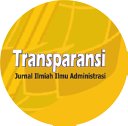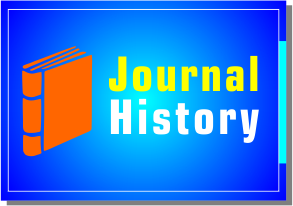Kebijakan Publik atas Penerapan Pajak Karbon di Indonesia
DOI:
https://doi.org/10.31334/transparansi.v6i2.3479Keywords:
Penerapan, Pajak Karbon, IndonesiaAbstract
The impact of climate change has become a global challenge that needs to be addressed together. Indonesia is one of the countries vulnerable to climate change due to declining CO2 carbon emissions. The declining air quality in Indonesia is one of the reasons why carbon tax should be implemented immediately. The main objective of a carbon tax is to change the behavior of economic actors to shift to lower-carbon economic activities. In Indonesia, regulations on carbon tax have already been made. Regulations regarding carbon tax rules have been regulated in article 13 of Law Number 7 of 2021 concerning Harmonization of Tax Regulations. The purpose of this study is to provide an overview of the concept of carbon tax implementation in Indonesia. Methodology research methodology is a literature review. The data presented is secondary data obtained from internet sites, national seminar materials, and national and international journals. The result of the research is the concept of carbon tax implementation through emission trading using cap-and-trade scheme. Provisions regarding the procedures for calculating, collecting, paying or depositing, reporting, and mechanisms for imposing carbon tax, and procedures for reducing carbon tax and/or other treatment for fulfilling carbon tax obligations, are regulated by the Minister of Finance Regulation which is currently being prepared by the government.References
Baranzini, Andrea & Stefano Carattini. 2013. Taxation of Emissions of Greenhouse Gases: The Environmental Impacts of Carbon Taxes
Bima Niko Pamungkas. 2022. Analisis Skema Pengenaan Pajak Karbon Di Indonesia Berdasarkan United Nations Handbook Mengenai Penerapan Pajak Karbon Oleh Negara Berkembang. Jurnal Pajak Indonesia
Bintang Adi Pratama. 2022. Implementasi Pajak Karbon Di Indonesia: Potensi Penerimaan Negara Dan Penurunan Jumlah Emisi Karbon. Jurnal Pajak Indonesia
Bruvoll, Annegrete & Bodil Merethe Larsen. 2004. Greenhouse Gas Emissions in Norway: Do Carbon Taxes Work?. Energy Policy Vol 32, Issue 4, pp 493-505
Gunadi. 2023. Aspek Administrasi Pajak Karbon Dan Perdagangan Karbon Di Indonesia. Webinar Fundamental Administrasi Pajak: Perdagangan Karbon dan Pajak Karbon. Universitas Indonesia
Hoeller, Peter & Markku Wallin. 1991. Energy Prices, Taxes and carbon Dioxide Emissions. OECD Economics Department Working papers 106.
Junaidi Cerdas Tarigan. 2023. Kebijakan Perdagangan Karbon Melalui Bursa Karbon. Webinar Fundamental Administrasi Pajak: Perdagangan Karbon dan Pajak Karbon. Universitas Indonesia
Kenneth Richards. 2023. Carbon Pricing in Low Carbon Development. Webinar Fundamental Administrasi Pajak: Perdagangan Karbon dan Pajak Karbon. Universitas Indonesia
Kus Prisetiahadi. 2023. Tantangan Implementasi Kebijakan Perdagangan Karbon dan Pajak Karbon di Indonesia. Webinar Fundamental Administrasi Pajak: Perdagangan Karbon dan Pajak Karbon. Universitas Indonesia
Lin, Bogiang & Xuehui Li. 2011. The Effect of Carbon Tax on Per Capita CO@ Emissions. Energy Policy Vo. 39, Issue 9, pp 5137-5146
Titi Muswati Putranti. 2022. Menilik Pajak Karbon di Indonesia. Seminar Nasional Tax Outlook 2023. Universitas Indonesia
https://signsmart.menlhk.go.id/
https://www.statista.com/chart/17095/highest-carbon-taxes-in-the-world/
https://gatrik.esdm.go.id/assets/uploads/download_index/files/2bb41-bahan-bkf-kemenkeu.pdf
Downloads
Published
Issue
Section
License

This work is licensed under a Creative Commons Attribution-ShareAlike 4.0 International License
Please find the rights and licenses in Transparansi : Jurnal Ilmiah Ilmu Administrasi By submitting the article/manuscript of the article, the author(s) agree with this policy. No specific document sign-off is required.
- License
The commercial use of the article will be governed by the Creative Commons Attribution license as currently displayed on Creative Commons Attribution-ShareAlike 4.0 International License.
2. Author(s)' Warranties
The author warrants that the article is original, written by stated author(s), has not been published before, contains no unlawful statements, does not infringe the rights of others, is subject to copyright that is vested exclusively in the author and free of any third party rights, and that any necessary written permissions to quote from other sources have been obtained by the author(s).
3. User Rights
Transparansi : Jurnal Ilmiah Ilmu Administrasi spirit is to disseminate articles published are as free as possible. Under the Creative Commons license, Transparansi : Jurnal Ilmiah Ilmu Administrasi permits users to copy, distribute, display, and perform the work for non-commercial purposes only. Users will also need to attribute authors and Transparansi : Jurnal Ilmiah Ilmu Administrasi on distributing works in the journal and other media of publications.
4. Co-Authorship
If the article was jointly prepared by more than one author, any authors submitting the manuscript warrants that he/she has been authorized by all co-authors to be agreed on this copyright and license notice (agreement) on their behalf, and agrees to inform his/her co-authors of the terms of this policy. Transparansi : Jurnal Ilmiah Ilmu Administrasi will not be held liable for anything that may arise due to the author(s) internal dispute. Transparansi : Jurnal Ilmiah Ilmu Administrasi will only communicate with the corresponding author.
5. Miscellaneous
Transparansi : Jurnal Ilmiah Ilmu Administrasi will publish the article (or have it published) in the journal if the article’s editorial process is successfully completed. Transparansi : Jurnal Ilmiah Ilmu Administrasi editors may modify the article to a style of punctuation, spelling, capitalization, referencing and usage that deems appropriate. The author acknowledges that the article may be published so that it will be publicly accessible and such access will be free of charge for the readers as mentioned in point 3.
Every accepted manuscript should be accompanied by "Copyright Transfer Agreement"prior to the article publication.











